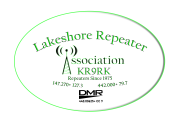- Emergency use of a repeater always takes precedence over all other use.
- Organized activities such as nets or training drills have priority over routine conversations.
- Before keying your transmitter, listen for any activity on the repeater.
- Keep individual transmissions short. The timer on most repeaters is set to three minutes to follow FCC regulations. However, someone who talks for that long in one transmission may be using valuable time if someone else has an emergency.
- Please limit your continuous use of a repeater to a reasonable length.
- It is considered bad etiquette to interrupt an ongoing conversation unless you have an emergency or something meaningful to contribute to the conversation.
- Remember that in many areas, the proword BREAK is used for routine break-ins. When visitors or new users use it as such, very gently explain that the standard usage on this repeater is to reserve the proword “break” for things that are of more than routine urgency, but not true emergencies. An automobile accident with no injuries is a good example of a situation where the proword BREAK may be appropriate.
- While we want our repeaters to be active, it is discourteous to use a repeater to talk to someone who is within easy simplex range. If you can hear each other on the repeater input frequency, switch to a simplex frequency for that long-winded conversation.
- Our repeaters have a courtesy tone to indicate that the other party has released the key to end their transmission. Always wait for the courtesy tone so that someone with an emergency or someone wishing to join the conversation has ample opportunity to break in.
- You must identify your station with your callsign every ten minutes and at the end of a conversation. While the FCC rules no longer require that you identify at the beginning of a conversation, it is still good amateur practice and common courtesy to do so.
- Whenever you transmit, always identify your station, even if you just key up the repeater for a test purposes. “Kerchunking” (a short, unidentified transmission to “bring up the repeater”) is illegal and considered poor amateur practice.
- Keep your activities on our repeaters responsible and courteous. off-color remarks or comments have no place in amateur radio.
- The FCC rules permit the use of amateur radio for transmissions of a technical or personal nature. Unfortunately, some amateurs use the repeaters to discuss what they don’t like about the actions of another amateur or a particular group. Such comments have no place on a repeater. Keep them to yourself or take them off the air directly to the individual(s) involved.
- As in all of amateur radio, transmissions for business purposes is illegal. Please be especially mindful of this whenever using the repeater.
- If you frequent a repeater, you should support it. Repeaters require a considerable effort and money to maintain. Please support the Lakeshore Repeater Association. By joining the Lakeshore Repeater Association you will ensure this valuable resource will remain a part of our community
Skip to content
